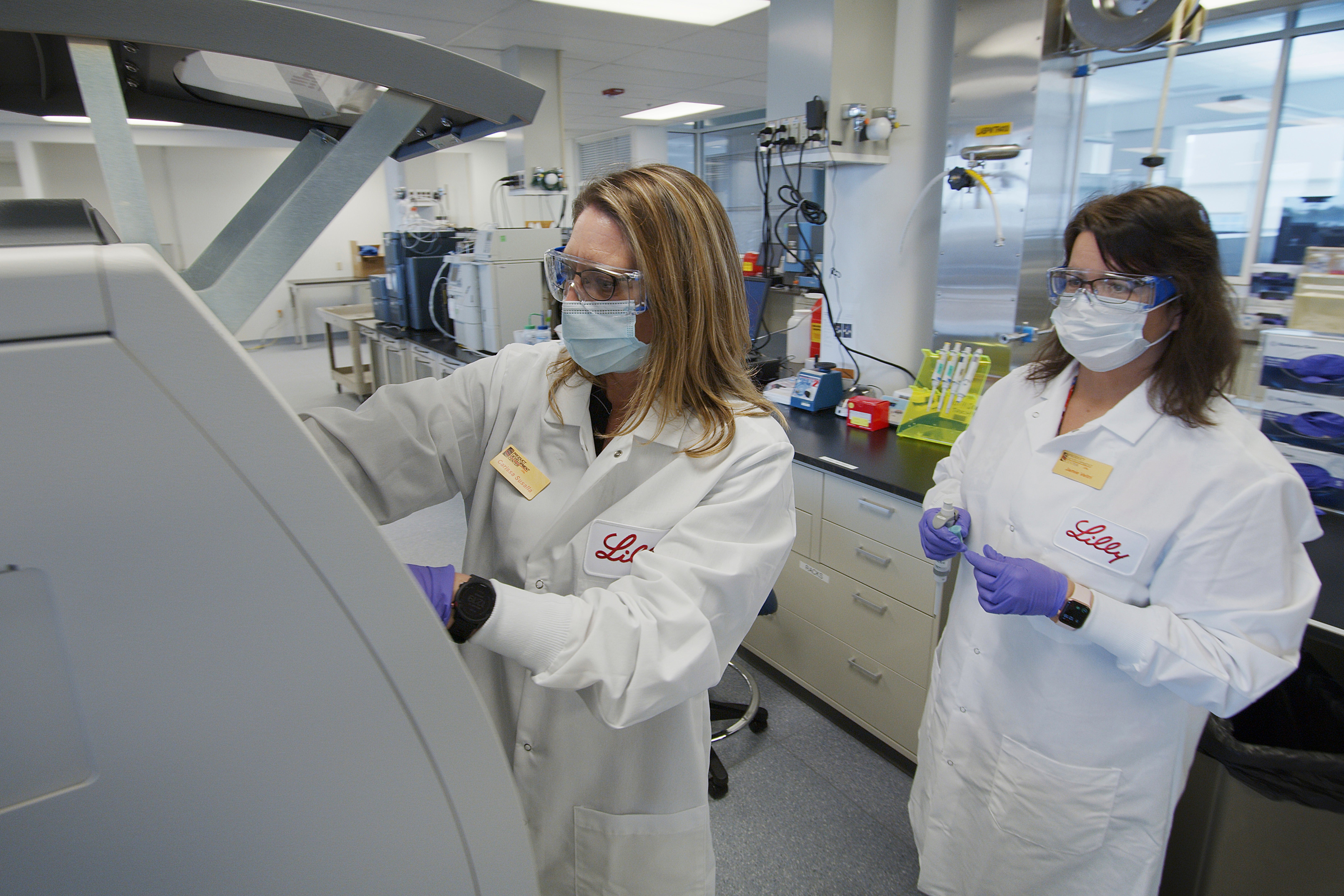Lilly seeks emergency use of its antibody drug for COVID-19
A drug company says it has asked the U.S. government to allow emergency use of an experimental antibody therapy based on early results from a study that suggested the drug reduced symptoms, the amount of virus, hospitalizations and ER visits for patients with mild or moderate COVID-19

Your support helps us to tell the story
From reproductive rights to climate change to Big Tech, The Independent is on the ground when the story is developing. Whether it's investigating the financials of Elon Musk's pro-Trump PAC or producing our latest documentary, 'The A Word', which shines a light on the American women fighting for reproductive rights, we know how important it is to parse out the facts from the messaging.
At such a critical moment in US history, we need reporters on the ground. Your donation allows us to keep sending journalists to speak to both sides of the story.
The Independent is trusted by Americans across the entire political spectrum. And unlike many other quality news outlets, we choose not to lock Americans out of our reporting and analysis with paywalls. We believe quality journalism should be available to everyone, paid for by those who can afford it.
Your support makes all the difference.A drug company says it has asked the U.S. government to allow emergency use of an experimental antibody therapy based on early results from a study that suggested the drug reduced symptoms, the amount of virus hospitalizations and ER visits for patients with mild or moderate COVID-19.
Eli Lilly and Company announced the partial results Wednesday in a news release; they have not yet been published or reviewed by independent scientists.
Its drug is similar to one that President Donald Trump received on Friday from Regeneron Pharmaceuticals Inc. These medicines supply concentrated versions of specific antibodies to help the immune system clear the coronavirus that causes COVID-19. They’re given as a one-time treatment through an IV.
Lilly has already started making one of the two antibodies in its drug, betting that ongoing studies would prove it worthwhile.
It’s not clear if the evidence will be viewed as strong enough for the Food and Drug Administration to grant emergency use authorization, as it has done for the antiviral drug remdesivir.
The results are an interim look at a mid-stage study in which 112 people received the antibodies and 156 got a placebo.
The amount of virus was significantly lower 11 days later in those given the drug -- the main goal of the study. Virus also was lower at earlier time points as well. Symptom scores were better at three days.
About 5.8% of patients given placebo required hospitalization or an emergency room visit versus 0.9% of those given the antibodies.
The company said there were no serious drug-related side effects.
___
Marilynn Marchione can be followed on Twitter: @MMarchioneAP
___
The Associated Press Health and Science Department receives support from the Howard Hughes Medical Institute’s Department of Science Education. The AP is solely responsible for all content.
Subscribe to Independent Premium to bookmark this article
Want to bookmark your favourite articles and stories to read or reference later? Start your Independent Premium subscription today.